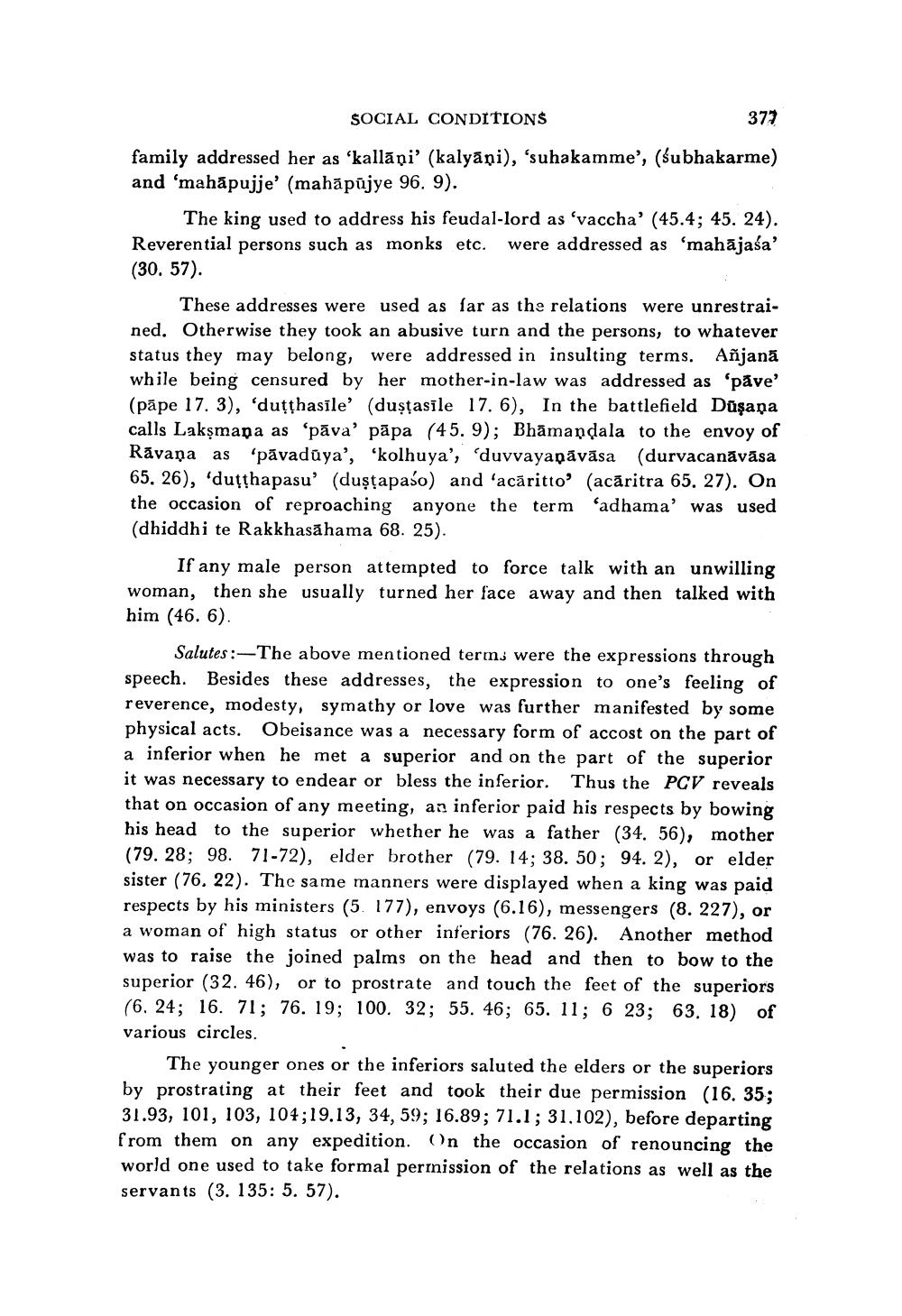________________
SOCIAL CONDITIONS
377
family addressed her as 'kallāņi' (kalyāni), 'suhakamme', (subhakarme) and 'mahāpujje' (mahāpūjye 96. 9).
The king used to address his feudal-lord as 'vaccha' (45.4; 45. 24). Reverential persons such as monks etc. were addressed as ‘mahājaśa' (30. 57).
These addresses were used as far as the relations were unrestrained. Otherwise they took an abusive turn and the persons, to whatever status they may belong, were addressed in insulting terms. Añjanā while being censured by her mother-in-law was addressed as "pāve' (pāpe 17. 3), 'dutthasīle' (duşțasile 17. 6), In the battlefield Düşaņa calls Lakşmana as pāva' pāpa (45.9); Bhāmandala to the envoy of Rāvana as "pāvadāya', 'kolhuya', 'duvvayapāvāsa (durvacanāvāsa 65. 26), duttha pasu' (duştapaso) and 'acäritto' (acaritra 65. 27). On the occasion of reproaching anyone the term 'adhama' was used (dhiddhi te Rakkhasāhama 68. 25).
If any male person attempted to force talk with an unwilling woman, then she usually turned her face away and then talked with him (46. 6).
Salutes :-The above mentioned terms were the expressions through speech. Besides these addresses, the expression to one's feeling of reverence, modesty, symathy or love was further manifested by some physical acts. Obeisance was a necessary form of accost on the part of a inferior when he met a superior and on the part of the superior it was necessary to endear or bless the inferior. Thus the PCV reveals that on occasion of any meeting, as inferior paid his respects by bowing his head to the superior whether he was a father (34. 56), mother (79. 28; 98. 71-72), elder brother (79. 14; 38. 50; 94. 2), or elder sister (76, 22). The same manners were displayed when a king was paid respects by his ministers (5. 177), envoys (6.16), messengers (8. 227), or a woman of high status or other inferiors (76. 26). Another method was to raise the joined palms on the head and then to bow to the superior (32. 46), or to prostrate and touch the feet of the superiors (6. 24; 16. 71; 76. 19; 100. 32; 55. 46; 65. 11; 6 23; 63. 18) of various circles.
The younger ones or the inferiors saluted the elders or the superiors by prostrating at their feet and took their due permission (16. 35; 31.93, 101, 103, 104;19.13, 34, 59; 16.89; 71.1; 31.102), before departing from them on any expedition. On the occasion of renouncing the world one used to take formal permission of the relations as well as the servants (3. 135: 5. 57).




